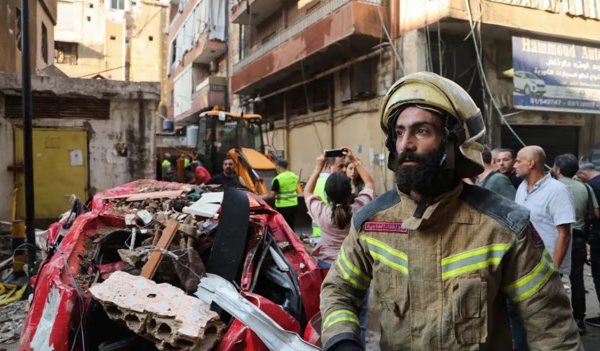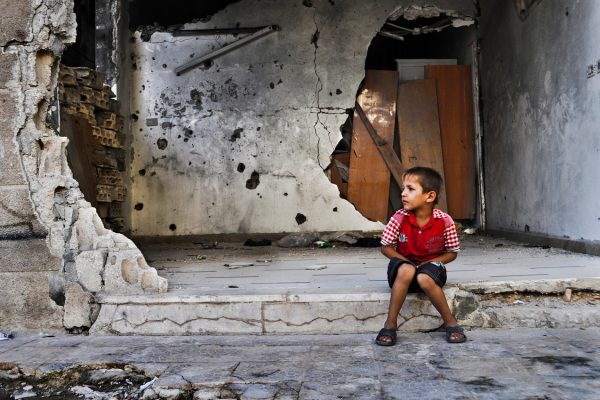Armed clashes erupted in Sudan on 15 April 2023 between the Sudanese military and the paramilitary in the capital, Khartoum. As a result, 3.6 million people have been internally displaced. Another one million people have crossed the border into neighbouring countries like Chad, Egypt, and Ethiopia.
Armed clashes erupted in Sudan on 15 April 2023 between the Sudanese military and the paramilitary in the capital, Khartoum. As a result, 3.6 million people have been internally displaced. Another one million people have crossed the border into neighbouring countries like Chad, Egypt, and Ethiopia.
“Dear Aya, your field trip is approved,” said the email I received from my manager when I asked for authorisation to visit one of our field offices. The excitement that followed was one of a child given a ticket to a theme park! “Oh! I should pack my favourite mug,” I tell myself, which ends up with me over-packing a large suitcase not really suitable for a four-day trip.
It’s now 5 A.M., and the driver is at my doorstep; I go out to greet him holding two cups of tea. He kindly helped me carry my over-packed suitcase into the car. “Bismillah,” (in the name of Allah) he says while starting the car engine. We begin our adventure to visit the field office.
The Field
As the sun rises, I look through the window enjoying the breathtaking scenery along the road. “It is so different from Khartoum,” I express to my colleague. He then shares his experiences visiting different parts of Sudan in a warm and culturally rich conversation that gets me thrilled to go on the next field trip.
Seven hours later, on a bumpy road, we arrive at the office. I struggle to get out of the car with my swollen feet and sore back. “You are most welcome,” says the field staff, as they greet us with a smile, offering food and drinks. “Tomorrow is going to be a busy day for you,” says the programme manager during our discussion.
Filled with excitement, I grab my camera, tripod, and microphone and travel for another three hours to the project field site. I am here to interview the people we are helping and produce human case stories. I am challenged with finding the perfect location for the interview as the vertical sun rays tamper with my lens exposure.
The Interview
I sit on the ground and adjust my position to face my interviewee. I clear my throat and start my interview with “Can you tell me your name?” as half the village comes to watch their member being interviewed.
He gets comfortable and I seize the opportunity to ask more in-depth questions. “You said that a grapefruit you bought using our cash grant helped your mother with malaria; how so?” I ask. Alhadi, a 52-year-old community leader in an internally displaced persons (IDPs) camp, replies, “Receiving the cash grant helped me buy a variety of food, the grapefruit helped my mother restore her appetite that she lost to malaria.”
As I proceed with the interview, well-spoken Alhadi surprises me with a question, “Are you a journalist? You ask very detailed questions!”
“No, I am a Communications Coordinator, and I like to capture the impact of our work through in-depth details,” I replied with nervous laughter.
I move on to my next case study, I sip on some water to help with the burning hot weather. This one is different; I am meeting a Gender-Based Violence survivor for the first time. I fight to control my anxiety before the interview and she begins sharing her story, “I was not aware of what happened to me, I only knew it was something terrible. I was scared, ashamed, and in pain.” I tried to continue the interview, scared that I would break down into tears.
The survivor had received psychosocial support from Islamic Relief. She continues, “My psychologist encouraged me to go to school and have a normal life.” This statement of resilience and courage helped me compose myself through to the end of the interview.
When I am in the field meeting our beneficiaries hundreds of miles away from my comfort zone, I get lost in their stories and lose track of time. The patience of my colleagues was tested, and shouts of “Are you done yet?” or “The sun is about to set!” started coming my way.
The ‘Saturday’
Armed clashes erupted in Sudan on 15 April 2023 between the Sudanese military and the paramilitary in the capital, Khartoum. The clashes have later spread to the Darfur and Kordofan regions. As a result, 3.6 million people have been internally displaced, according to the International Organisation for Migration’s (IOM) latest report in July. Another one million people have crossed the border into neighbouring countries like Chad, Egypt, and Ethiopia.
On a Thursday afternoon, my colleagues and I enjoyed a group iftar in Ramadan. 120 days later, I was waking up to the terrifying sounds of gunfire and stray bullets puncturing the roof. It was a Saturday, and Sunday morning had not yet come.
The Celebration
My last field visit since the crisis broke out was to Gongolesa village in eastern Gedarif state. Islamic Relief has constructed a new 30,000 cubic meter water hafir (dam) and the community celebrated its opening.
The celebration was filled with folklore, drums, and national music. Women held water jerricans as they danced and filled the air with loud Sudanese zagharit (ululations, similar to a howl, performed on happy occasions). Children waved vibrant-coloured flags above their heads.
Witnessing the effect we leave on communities is priceless and I’m so happy I got to be a part of that special day.
As I reflect on my visits to the refugee camps in Gedarif state, a quote from Elyas, an Ethiopian priest in Um-Rakuba Refugee Camp, stays with me. “I am a rich man; I had 17 houses, farms, shops, and tractors. Now, I sleep on the floor! You never know when your life could change around.”
Little did I know that would be my situation two years later. The only way I could make the most out of this situation is to be more empathetic towards refugees and those who flee violence.
The Relief
The fighting is still ongoing and the need for humanitarian assistance in Sudan is growing. Islamic Relief has launched an emergency response targeting more than 127,000 people in Aljazirah, Gedarif, and Khartoum States. Our response includes providing food, shelter items, seeds, and cash grants to those in need. We are also providing hospitals in Aljazirah state with fuel and medical supplies.
At least 100 Islamic Relief Sudan staff have been displaced inside and outside Sudan, myself included. We have experienced fear, loss, and mental distress. However, as humanitarians, we continue to serve others, even in what might be our worst moment.
Surviving violence and forced displacement were the heaviest experiences I have ever gone through. The fact that I am part of a charity that is helping displaced people gives me relief.
With your help, we can continue our essential work and provide relief to more displaced and violence survivors across Sudan. Please donate now to our Sudan Emergency Appeal. Sudan Emergency | Islamic Relief UK (islamic-relief.org.uk)





